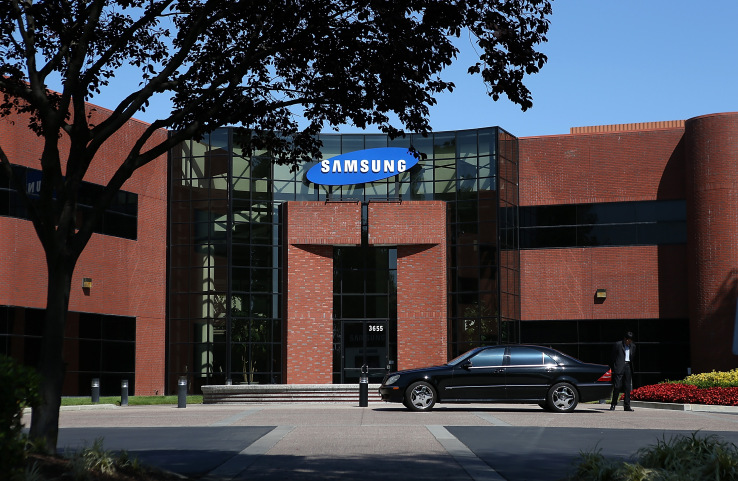

Not to be outpaced in the connected car market by other tech giants, today the world’s largest smartphone maker, Samsung, announced two major pieces of news to take its automotive strategy up a gear. It has launched the Samsung Automotive Innovation Fund, a $300 million fund to back startups and other interesting bets in the automotive market. And as a first investment out of that fund, Samsung has put €75 million (nearly $90 million) into TTTech, an Austria-based developer of platforms and safety software for connected cars, alongside a corresponding investment from Audi.
In addition to this, Samsung also announced a strategic initiative to develop connected-car technology with Harman, the auto and audio product maker that it acquired last November for $8 billion.
“During this period of extraordinary transformation in the automotive industry, we are excited to play a leadership role in supporting and shaping the future of smarter, more connected vehicles,” said Young Sohn, President and Chief Strategy Officer of Samsung Electronics and Chairman of the Board of HARMAN, in a statement. “The Autonomous/ADAS Strategic Business Unit and automotive fund reflect the company’s commitment to the values of open innovation and collaboration. In partnership with OEMs and startups, we will make the driver and passenger experience safer, more convenient, and more enjoyable.”
While giants like GM, Volkswagen and Toyota (among others) have traditionally dominated the automotive industry, the next wave of innovations that will shape how we (and other things) get from A to B is fast coming around the bend. This leaves everything to play for, as car ownership, in-car systems, and how cars will be operated are all getting disrupted and updated through technology.
That’s driving a large wave of investment. Car companies like GM, Volkswagen, Daimler and many others are putting billions of dollars towards backing a range of startups that are building technology and services for that brave new automotive future (a small handful of examples: GM investing $1 billion in Lyft, Volkswagen investing $180 million in smart car tech maker Mobvoi, and Ford pumping $1 billion into Argo AI for self-driving tech). Car makers are also investing internally in their own R&D to complement that.
Then there are the tech companies: Apple, Google and Baidu are also making large bets here, building autonomous cars of their own and also investing in and buying up talent to enhance those strategies (not without hiccups, of course).
Samsung is among those who are hoping to be at the forefront of these developments, looking at the car as the latest “hardware” that it can build and help control.
At the end of August, the company received a permit to run self-driving car tests in California, alongside an earlier permit that it got in Korea, and announcements like today’s will make sure that they will have not just their own tech, but that of partners, to put into those vehicles.
This is not Samsung’s first move to invest in automotive tech. Previous investments have included automated driving startups AImotive, Renovo; Quanergy, TetraVue, and Oculii for sensors; Autotalks and Valens for connectivity; and Graphcore for high-performance computing, the company noted.
It doesn’t look like there has been a full round amount disclosed for Samsung’s investment TTTech but we are trying to find out. Prior to today, the startup had raised around $54 million, with backers including Audi, General Electric and Infineon — another sign of the players that are hoping to have a seat at the table (or behind the wheel, if we’re looking for a relevant metaphor) in the next generation of automotive solutions.
TTTech works on road, air and aerospace systems — its systems are used in the Boeing 787 Dreamliner and NASA’s Orion — but it said that Samsung’s investment will be used specifically to augment the work it has been doing with Audi on self-driving car systems for the Volkswagen Group (which owns Audi). This is about getting Samsung chips and other equipment into cars, and the companies are already showing off how the results will look:

TTTech specialises across a range of services like “functional safety, deterministic networking, real-time systems, and complex software integration” for autonomous and other automated systems, and its safety tech powers the piloting program on the Audi 8.
“Automotive advances like autonomous controls and advanced driver assistance systems will have a profound impact on society—from transforming urban spaces to bringing mobility to aging populations. At Samsung, we see it as our responsibility to invest in the technologies that will revolutionize the way we live, work, and connect with one another,” said Samsung’s Sohn. “TTTech has demonstrated a remarkable ability to innovate and build world-class technologies and platforms. This is a seminal moment for Samsung and our Automotive Innovation Fund, and we look forward to working with leading OEMs like Audi and the entire TTTech team to set a new standard for automotive-safety technology.”
“There is already a high demand for ADAS solutions, and that demand is rapidly growing with the advancements in connected cars and autonomous driving,” said Dinesh Paliwal, President and CEO of HARMAN, in a statement. “This strategic business unit demonstrates Samsung’s and HARMAN’s commitment to answer that call – to be the definitive partner for seamless and integrated technologies. It also reflects the incredible power that Samsung and HARMAN, as a collective force, will bring to our OEM customers as we combine Samsung’s scale and resources with HARMAN’s deep automotive experience and networks. Together, we are driving the future of automotive.”
HARMAN has named John Absmeier Senior Vice President of the unit, alongside his current position as VP of smart machines.
Featured Image: Justin Sullivan/Getty Images

